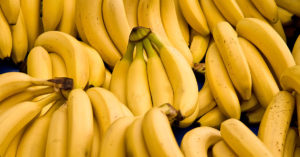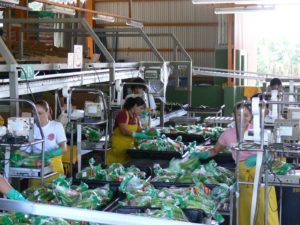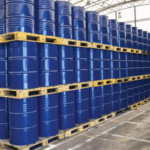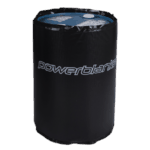What is the worst fruit of all time? Bananas: they’re one of the biggest causes of food waste for grocers. But what does this have to do with temperature control?
Temperature Control and Bananas

In terms of its ability to waste, Food and Wine magazine rates bananas as the worst. A February 13, 2018 article said bananas are the biggest source of grocery store waste.
Bananas are not the only produce products to rot before it gets to consumers: food is wasted at every step of the supply chain. But bananas stand out because consumers tend to only purchase bananas that they perceive are ripe, which in most cases are a spotless yellow or yellow-green.
Bananas: A Misunderstood Fruit
What consumers don’t understand is that bananas are ripe and edible while green all the way through until black. The darker the banana, the more sweet it is. The lighter the banana, the more starchy it tastes. Bananas can be eaten alone, used in baking, mixed in a smoothie, as a topping for oatmeals and ice cream, and even fried. How they are used is determined by the fruit’s starchy or sweet consistency. As a result, blackened bananas can often be seen as food waste. But even though they’re still useful, bananas that aren’t picturesque are thrown out simply because consumers won’t purchase spotted or blackened bananas.
Rot in Transit
However, a significant amount of banana waste comes from the transportation of the fruit. Ash Ngu, an expert of banana transportation, described on Quora how the process works.
“Bananas that Americans eat are imported from countries like Costa Rica, Guatemala, Honduras, Mexico and Panama. They’re harvested green and unripened so that they can last the 3-4 weeks it takes to get them into grocery stores. During processing, they’re broken up into bunches, labeled with those little stickers and boxed up in order to protect them during shipping.

“The bananas are transported across the ocean in temperature-controlled ship holds. Once they get to their destination port, a ripening manager inspects the bananas. They’re visually inspected, their temperature is taken, the peel is peeled, banana flesh color and texture is evaluated. Then they go into pressurized rooms which force air through the banana boxes for consistent ripening. The temperature of the room can be controlled to quicken or slow the ripening process. After they are ripened appropriately, the bananas are sent on their final journey in trucks to various grocery shelves across the nation and into your hands.”
Banana Gas
Some producers use chemical gases to speed up the ripening process of bananas. This chemical is called ethylene. A small hydrogen gas, ethylene is a naturally occurring byproduct of ripening fruit, including bananas. Producers will often use ethylene to encourage the ripening of bananas to time their peak “fresh appearance” with the date at which consumers will see them on store shelves.
One conclusion that can be gleaned from learning about the process it takes to get bananas from tree to store is that doing so is very expensive, and that temperature control is critical to helping bananas reach customer at the peak of perfection. There are a few items out there that can help with bringing more fruit to the customer, but refrigeration and ethylene are the main methods used by producers and grocers today. These processes have proven very effective in preventing food waste.
Chilling Produce
North Slope Chillers, a sister company to Powerblanket, manufactures the most efficient chillers used in maintaining consistent temperatures in the grocery industry. Visit https://northslopechillers.com/ to learn more about how temperature control is possible through chiller equipment.
Keep your products and processes within the desired temperature range with Powerblanket's industrial cooling solutions.





